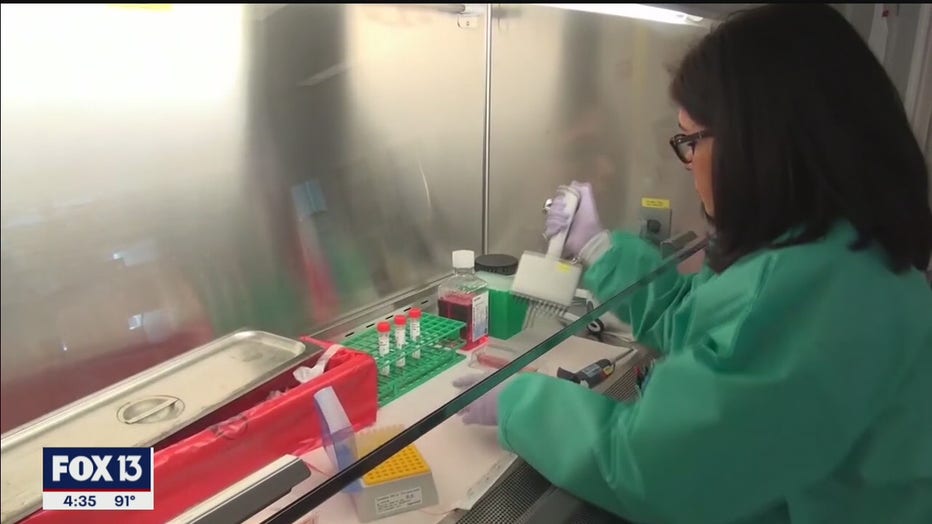Florida researchers track COVID mutation that suggests virus is adapting to humans
TAMPA, Fla. - Researchers in Florida are tracking a mutation in the COVID-19 virus that makes it better at infecting human cells.
The changes in the virus are within the spike proteins, which are what allows the virus to bind and infect human cells. The mutation, called D614G, stabilizes the spike protein, making it less likely to fall apart. That's why it's more infectious.
Scripps Research Institute researcher Hyeryun Choe, PhD. says they used databases of the virus’s gene sequences to track just how quickly the mutated virus has taken hold.
She says while it doesn't prove the virus is able to spread more easily, it does imply it.
“In early February, there was almost no detectable mutant virus in the database. But in March, it increased significantly to 20 percent to 25 percent of the total isolated sequences in the database, and then in May it increased to 70 percent,” explained Dr. Choe.
RELATED: Trump rally called 'dangerous move' in age of coronavirus

The researchers also wanted to clear up some confusion being reported elsewhere. Because the mutated viruses have stronger spike proteins, and fewer fall off, more spikes are available to bind with cells.
That doesn't mean these viruses have more spikes than their predecessors; they just have more spikes that work.
Mutations like this help the novel coronavirus ensure its survival. Simply put, the scientists believe the virus is evolving and better adapting to humans.
There is no evidence that this mutation has any effect on the severity of the disease. But because this mutation is so common in the U.S., Dr. Michael Farzan of Scripps says he doesn't think it will impact us much more than it already has.
“The virus is already dominating within the United States and Europe, so our experience with the virus is mostly our experience with this virus, with the new form of the virus,” he noted.
RELATED: Some states hit pause, others press on amid spike in coronavirus
This mutated virus is also predominant in Europe, including Italy. But that wasn't the case in China with their initial outbreak.
Beijing is now reporting new cases of the virus. Today at a WHO press briefing, they said they are waiting to see the new genome sequences from that outbreak indicate that they, too, now have the mutation.

